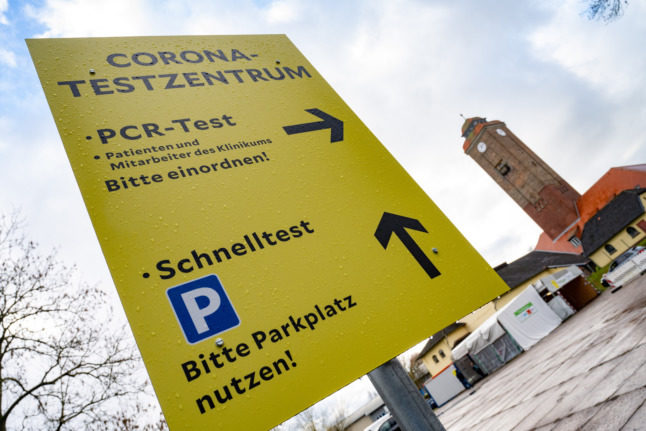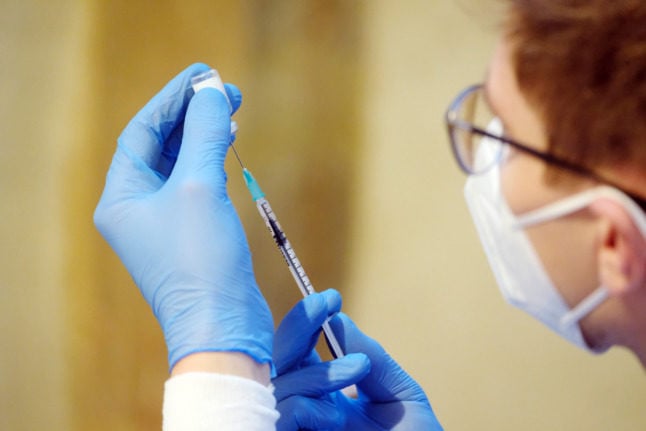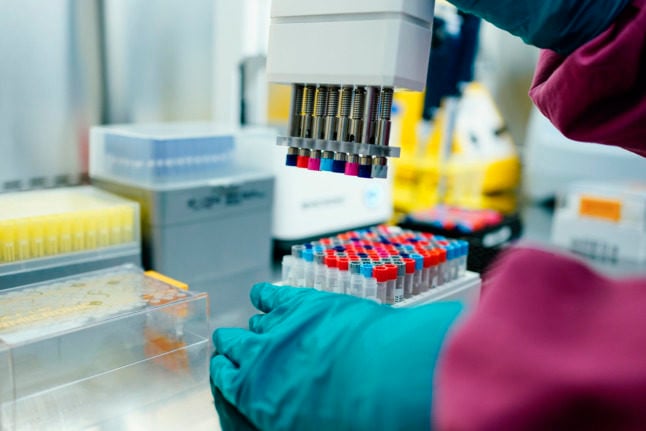As has been evident throughout the pandemic, Covid variants often take just weeks to spread internationally – and it seems that the highly transmissible Omicron variant is no exception.
Within days of the new variant being discovered in a genomic sequencing lab in South Africa, the first cases had also been tracked down in Europe – in countries including the UK, Netherlands, Belgium and Germany.
So far, at least six cases of Omicron have been confirmed in Germany, with three in Bavaria, one in Hesse, and two further cases in North Rhine-Westphalia and Lowery Saxony. But experts think this is likely to be an underestimation of real numbers.
According to Oliver Keppler, director of the Max von Pettenkofer Institute at the Ludwig-Maximilians University in Munich, travellers may have been bringing the new variant to European shores for a couple of weeks now. “There may be a few hundred cases in Germany,” he told DPA.
The fact that European countries only detected the variant in travellers after South Africa and other countries warned about it probably means that many cases have so far gone undetected, Austrian-born vaccination expert Florian Krammer tweeted a few days ago.
“It also tells us a lot about genome surveillance in some high-income countries,” wrote the immunologist from the Icahn School of Medicine.
READ ALSO: Germany must be prepared for Omicron variant, warns top virologist
Is Omicron responsible for high Covid cases in Germany?
Experts think this is a highly unlikely. The current infection figures are linked to the highly transmissible Delta variant, Keppler stressed. On Wednesday, Germany recorded more than 67,000 new cases within a day and a 7-day incidence of 442 infections per 100,000 people.
While the Robert Koch Institute (RKI) hasn’t yet released official figures showing the extent of Omicron in Germany, there’s very little evidence to suggest that a major wave of infections with the new variant has gone undetected.
However, the course of the pandemic so far has shown that predominant variants can be replaced by more infectious mutants within a relatively short time. The Alpha variant (B.1.1.7) was reported by the UK a few days before Christmas 2020, gradually becoming the dominant strain in Germany in the early months of 2021.
According to RKI data, the switch to the Delta variant discovered in India then took place very quickly over summer. Delta accounts for around 99 percent of all Covid cases in Germany at the moment.
What are health experts doing to determine the numbers?
The fact that Omicron was present in Germany was discovered through routine testing. Each week, a random sample of 5-10 percent of positive Covid tests are subject to genomic testing, with the RKI placing the results in its weekly report.
According to Association of Accredited Laboratories in Medicine (ALM), conventional PCR tests carried out in labs determine whether someone has a Covid infection but don’t reveal what variant it is. Additional PCR retesting for certain characteristic mutations can provide indications of Omicron, but a whole genome analysis is still necessary for confirmation.
Special Omicron kits are now being piloted in laboratories to confirm suspected cases of the variant – for example in returning travellers or their contacts.

A sign points the way to a Covid testing centre in Stralsund, Mecklenburg Western-Pomerania. Photo: picture alliance/dpa | Stefan Sauer
“We assume that by the end of the week at the latest, we will be able to carry out the additional PCR tests for the Omicron variant after the first PCR to detect an infection,” ALM board member Nina Beikert told DPA.
To try and get a better picture of the events of the last few weeks, laboratories are likely to start analysing their reserve samples. The RKI has confirmed it will go back and look at genome sequences from the past to understand more about the spread of Omicron in Germany.
READ ALSO: Germany to ban travel from South Africa over new Covid variant
How could Omicron influence the fourth wave?
The impact of Omicron – which is believed to be more transmissible than Delta – cannot be accurately estimated yet, according to virologist Sandra Ciesek, who works at the University Hospital Frankfurt. “We currently have a pronounced Delta wave,” she told DPA. “That alone is a big problem that demands our full attention.”
One thing we do know is that the new variant will place more burden on labs as scientists try to track its spread, she said.
While it’s still too early to know for certain, health experts are concerned that the extraordinarily high number of mutations in Omicron could make it more dangerous than previous variants.

A medical professional prepares a dose of Covid vaccine. There are concerns that Omicron could be able to break through vaccine protection more easily than other variants. Photo: picture alliance/dpa/dpa-Zentralbild | Sebastian Willnow
It may also be better able to evade vaccine protection – though modified mRNA vaccines can be developed within a few months if this is the case, according to Germany’s BioNTech.
Keppler said that Omicron is particularly worrying at this stage in the pandemic, when Germany’s hospitals are already full to capacity.
“In view of the Delta infection dynamics, our health system is already at a dead end, with its back to the wall,” he said. “Now we have a car with defective brakes heading towards it.”
Omicron properties are still difficult to assess but what is known so far gives rise to fears of a worsening of the situation, said Keppler, adding that there is now “maximum pressure to act to break the fourth wave”.
READ ALSO: EXPLAINED: Germany’s latest proposals to fight fourth Covid wave



 Please whitelist us to continue reading.
Please whitelist us to continue reading.
Member comments